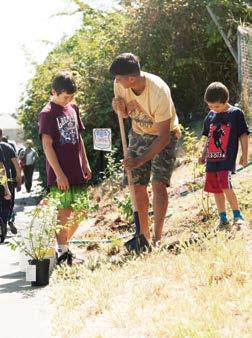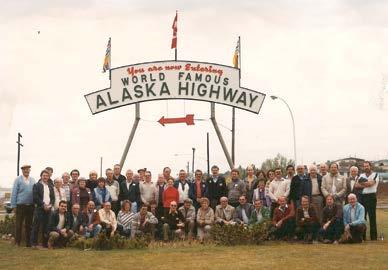
2 minute read
Storytelling
Marylee Stephenson, PhD
Vancouver, like so many cities around the world, has a lively storytelling community. Storytelling is a basic human activity.
As a performer, I focus on storytelling . . . about what I have learned, how I changed or did not, and why I felt the way I did.
The story of what I did today is not that I went to the grocery store or nearly stepped in front of a car and almost died.
Storytelling events often have themes and the storytellers are asked to respond to them.
The stories include “what kinds of adjustments people make in COVID times to feel connected to others” or “what COVID can do to us in ways we never thought about before.”
For a Connections theme, I recently told a story about how my mother (now long-gone from this earth) connects with me via rainbows. Not that when I see a rainbow I know my mother is talking to me; I’ve learned that I’m not alone and that the connection with a dear person doesn’t die when that person is no longer living.
©iStockphoto.com/iQoncept
Until COVID, there were events in cafes, church basements, theatres, at conferences . . . all advertised by digital media and word-of-mouth.
Audiences were diverse, varying by the ambiance of the venue, the story theme for the night, the location, and the fan base of a given storyteller. Some events had open mics where anyone with enough nerve gets up on the little stage and talks. The age range of the storytellers was as wide as the profile of the audience.
Like any performers, tellers need to publicize their work, through putting together a Facebook page, a website, an Instagram account, and sending good old email.
Even during COVID, decisions must be made about how to communicate effectively with the target audience via interesting content and attractive formatting and visuals. Today storytelling
Social media notice for monthly Storytelling event
is being revolutionized by digital creativity and audience access around the world. Online audiences have one powerful technique to cut off communicating—the dreaded “delete” button; tellers have to keep that very much in mind!
Storytelling fans have their side to uphold, too, such as developing their skills to find out about events, keeping track of their favourite storytellers, and deciding which ones to follow.
There are increasing information sources and pages and pages of announcements and invitations. s Marylee Stephenson, MA, PhD, is an EcoTraveller, Author, Storyteller, Curator of Gallery of Indian Art, Vancouver Fringe Festival Star, birder, and photographer.









